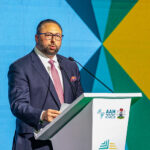NIMR, ACCESS-HPV collaborate to reduce cervical cancer in Nigeria
By Kemi Akintokun
The Nigerian Institute of Medical Research (NIMR) and Actions for Collaborative Community Engaged Strategies for Human Papilloma Virus (ACCESS-HPV) have launched a programme that will increase awareness on cervical cancer screening.
Prof. Oliver Ezechi, the Country Lead of ACCESS-HPV and Director of Research in NIMR, said during the launch in Lagos on Wednesday that the programme would be funded by the U.S. National Institute of Health and National Cancer Institute.
He added that the project, which is expected to reduce the burden of the health conditions in Nigeria, would support the Nigerian National Cancer Prevention and Control programme in its drive to join other nations to eliminate cervical cancer by 2030.
The News Agency of Nigeria (NAN) reports that cancer of the uterine cervix, commonly known as cervical cancer, is the fourth most common cancer among women globally and the second most common cancer among women.
Ezechi said: “The Human Papiloma Virus (HPV) causes most cervical cancers and the prevalence in Nigeria is 24.8 per cent.
“The high burden of cervical cancer and the resultant number of deaths occurring in woman in Nigeria is attributable to poor access to screening and identification of precancerous lesions.
“It is against this backdrop that our team will develop new HPV vaccination campaign for young girls and self collection campaigns for mothers, using crowdsourcing open calls and participatory learning communities.
“The ACCESS HPV team comprises of experts from Saint Louis University, Missouri, U.S., led by Prof. Juliet Iwelunmor, Wake Forest University School of Medicine, led by Prof. Joe Tucker and Monash University in Australia, led by Dr Jason Ong.
“NIMR is also a leading centre in making cervical cancer screening accessible to the public through community-based screening and HPV testing.
“We will use the same methodology we used to increase access to HIV testing through HIV self-testing (ITEST Project), which is currently running in 30 local government areas across 14 states.”
According to him, the project is also aligned with the World Health Organisation’s global strategy inaugurated in 2020 to accelerate the elimination of cervical cancer as a public health challenge.
Ezechi called for a multi-stakeholder approach across the health sector, government, women’s right advocacy organisations and various religious bodies to win the fight against the scourge in the country. (NAN(www.nanews.ng)
Edited by Dianabasi Effiong/Hadiza Mohammed-Aliyu
Published By
Has also recently published
 Economy/BusinessJuly 3, 2025Jason Miller outlines Trump’s Africa trade vision
Economy/BusinessJuly 3, 2025Jason Miller outlines Trump’s Africa trade vision General NewsJuly 3, 2025Structured finance evolving to meet Africa’s changing economic landscape – Oramah
General NewsJuly 3, 2025Structured finance evolving to meet Africa’s changing economic landscape – Oramah HealthJuly 3, 2025Lawmakers call for end to foreign dependencies in health financing
HealthJuly 3, 2025Lawmakers call for end to foreign dependencies in health financing Culture & TourismJuly 3, 2025Don calls for investment in tourism to reduce oil dependency, boost economy
Culture & TourismJuly 3, 2025Don calls for investment in tourism to reduce oil dependency, boost economy




